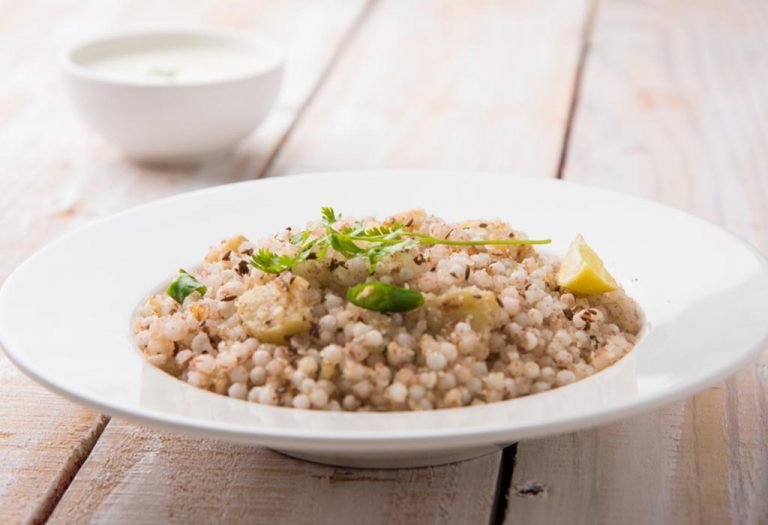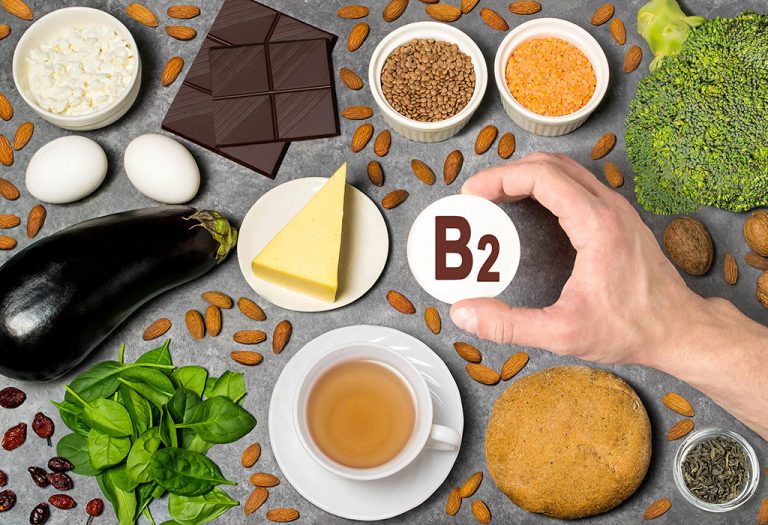Miso Soup during Pregnancy – Health Benefits and Recipes
Miso soup is a popular japanese seasoning. It is made from fermenting soya beans with koji and salt. Ingredients like barley, rice, seaweed, etc., are sometimes used during fermentation. After fermentation, the residue is a thick Miso paste with variable uses. Miso soup is made out of this paste. It is rich in class B vitamins, vitamin E, vitamin K, folic acid, minerals, and proteins. It is also known to boost gut health. This recipe is gaining popularity worldwide due to all the benefits it serves. Pregnant ladies have especially started to drink this soup. It helps relieve pregnancy-related ailments like indigestion, gas, bloating, and constipation. This soup bowl isn’t calorie-laden, unlike other starchy soups available. But certain things decide whether miso soup is safe for pregnancy or not. Let’s dive into that discussion.
Is It Safe to Drink Miso Soup During Pregnancy?
Usually, miso soup is considered safe for pregnancy. But it also depends on the ingredients in your soup. There is a multitude of Miso soup variants in the market. So, it is difficult to mark which is safe and which is not. But miso soup has a considerable amount of sodium in it. This can cause water retention in the body, resulting in bloating in pregnant ladies, specifically in the 2nd or 3rd trimesters.
So, the bottom line is:
- Do not buy instant miso soups because they have high sodium content.
- Use the lighter miso soup – white miso. Do not consume darker varieties like brown and red miso (high in sodium content).
- Choose naturally fermented and unpasteurised miso.
- Do not boil miso. Boiling causes the loss of natural enzymes. Gently warm it and remove it from the flame before the simmering starts.
Is It Okay to Drink Miso Soup in All Trimesters?
Yes, pregnant women can consume miso soup in all trimesters. The only condition is to keep an eye on labels. Especially in the 3rd trimester, do not eat high sodium content foods. Do not cross the limit of daily sodium and salt intake. Otherwise, it could result in water retention, as discussed earlier.
How Much Miso Soup Should Pregnant Women Eat?
One important thing that pregnant women need to understand is that during pregnancy, the cases of water retention and oedema are high in the second and third trimesters, which requires low sodium intake. Since miso soup is high in salt, it is essential for mamas-to-be to be cautious of their sodium intake when consuming miso soup. Additionally, pregnant women should aim to have about 2400 mg of sodium each day. That’s about 6 grams or one teaspoon of table salt for adults as per the NHS (1). Therefore, sticking to the recommendation is highly important.
It’s much better for pregnant women to choose white miso over red or yellow miso when making the miso soup. White miso has less salt than the red and yellow ones, which makes is ideal for pregnancy. Although there is no such bar over the ideal quantity, one to two servings of miso soup per day is generally recommended.
Ingredients in Miso Soup That Can Be Considered While Pregnant
Apart from sodium content, a few ingredients are not suitable for you if you are pregnant. Here’s the list:
1. Egg
Raw or runny eggs are not suitable for consumption during pregnancy (2). If your miso soup has egg, either fry it or hard-boil it till the yolk gets cooked thoroughly.
2. Seafood
Miso soup with seafood like shrimp, clams, prawns, etc., should be adequately cooked. Mayo Clinic additionally suggests avoiding raw, undercooked, or tainted seafood during pregnancy (3).
3. Sea vegetables and seaweed
These are common ingredients of miso soup. However, they need to be cooked properly if they are to be consumed by a pregnant lady. In fact, as per the Food Standards Australia New Zealand (FSANZ) 2011, pregnant women, breastfeeding women and children are advised not to consume more than one serving a week of brown seaweed due to its excessive iodine content (4).
4. Soy or Tofu
Tofu is safe to consume during pregnancy (5). However, pregnant ladies diagnosed with hypothyroidism or breast cancer should restrict soy consumption. Since miso already has a good amount of soya in it, it would be great if you avoid soy.
5. Vegetables
Vegetables are used as toppings in a miso soup. Take care that the vegetables are washed nicely and are safe to consume.
6. Noodles
Noodles are safe to eat in pregnancy but in lesser quantities. It is because of the high amount of starch in it.
7. Homemade or Unpasteurised Miso Paste
This is something you should follow judiciously. You should avoid consuming homemade miso paste. This is because there are chances of cross-contamination at home during or after fermentation. However, commercially manufactured miso paste is safe to consume in pregnancy. There are zero chances of error when manufactured in a sterile factory.
8. Sake and Mirin
The traditional Japanese soup has these alcoholic beverages in it just for flavouring. The alcohol gets wholly cooked in the recipe and doesn’t affect pregnancy.
Benefits of Miso Soup When Pregnant
After so many questions have been answered, it is clear that miso soup is good for pregnancy if the above-discussed points are kept in mind while preparing it. Furthermore, there are some benefits of miso soup consumption in pregnancy. These include:
- It is an excellent source of manganese, zinc, copper, vitamin K, and riboflavin.
- Consuming miso soup daily lowers the risk of stomach cancer and heart disease (6).
- It is rich in protein and ensures healthy mother and child development. It also fills you fast and keeps you full for longer.
- Choosing the right ingredients for your miso soup bowl will make it a complete meal.
- The consumption of miso soup during pregnancy reduces the risk of preterm birth (7).
- Surprisingly, the intake of miso does not increase blood pressure compared to the equivalent salt intake (8).
Are There Any Risks While Eating Miso Soup During Pregnancy?
The relationship between miso soup and pregnancy is healthy. However, there can be problems if it is not consumed properly, even if it is deemed safe to consume in all trimesters.
- The risks of oedema (swelling) and water retention are high. Therefore, pregnant women should watch out for their daily servings of miso soup during pregnancy since miso soup is high in sodium.
- Most packaged miso brands are pasteurised, while the traditional ones do not involve pasteurisation. During pregnancy, the immunity is low, therefore, it is best to consume pasteurised miso soup to keep away possible infections.
Is Miso Soup Bad for Morning Sickness?
There are no reports or clinical pieces of evidence to support this belief. However, many women report that their morning sickness got relieved due to the consumption of miso soup. It would be great if you start trying it in small quantities and check that miso soup and pregnancy go well together for you or not. It is because every pregnancy is different due to the different bodies involved. So, something that works for you might not work for someone else.
Healthy Miso Soup Recipes for Pregnant Women
Here are some delicious miso soup recipes to relish during pregnancy:
1. Spring Delight
This recipe can be consumed throughout the year. But since the ingredients involved here taste the best during spring, hence the name.
Ingredients
These things you will require for Dashi:
- 4-inch piece Kombu
- Filtered Water – 6 cups
- Dried Shiitake Mushrooms – 3
Ingredients for soup are:
- Medium-sized radish, sliced thinly – 3
- White Miso, unpasteurized organic sweet and naturally fermented- 6 tbsp
- Lemon Zest – 1
- Fresh lemon juice – 1 tbsp
- Asparagus Spears, diagonally cut into 5cm slices – 8
- Sugar snap peas, length halved and strings removed – 1 cup
- Watercress trimmed – approximately 2 cups
- Chives or scallions, thinly sliced – 1/4
How To Make
Here are the steps to make the soup:
- First, let us prepare the Dashi. For Dashi, add mushrooms, kombu, and filtered water to a pot.
- On high heat, boil the added ingredients. Once everything is burned, cover the pot and reduce the heat. Keep on cooking like this for 15-20 minutes.
- After 20 minutes, take out the kombu and mushrooms. Slice both of them and add them to the soup. Compost the kombu, and our dashi is ready.
- Let the soup cook.
- Keep dashi on simmer. Add sugar, snap peas, and asparagus and cook for 30 seconds.
- Next, add radish and cook for another 30 seconds.
- Now, take a strainer and remove all the veggies. Put them on a plate and let them cool.
- Add miso to a medium strainer on low heat and keep it on the dashi pot. Let miso settle in the broth.
- Keep on stirring.
- Once the miso is mixed nicely, add blanched veggies and watercress to it.
- Cook on low heat for a minute.
- Do not boil the soup now.
- Remove from heat and add lemon juice and zest. While serving, dress the soup with scallions.
2. The Winter Potion
So, we have covered your winters with this appetizing miso soup recipe. Let us check out the recipe!
Ingredients
- Dried Shiitake Mushrooms – 3
- Kombu piece – 2 inch
- Filtered water – 8 cups
- Adzuki beans, cleaned and soaked for 12-24hrs in 2 cups of filtered water – ½ cup.
- Toasted and refined Sesame oil – 1tbsp
- Medium-sized onion first quartered and then thinly sliced – 1
- Kale leaves, thinly sliced – 1 cup
- Pumpkin, finely diced – 2 cups
- Dark Miso, Brown rice miso or barley – 3tbsp 2tsp
- Ginger juice – 4tsp
- Mellow white miso or chickpea miso – 3tbsp
- Thinly sliced Scallions for dressing
How To Make
- Put thoroughly cleaned adzuki beans in a pot. Add water, kombu, and shiitakes. Bring to boil on high heat.
- Simmer the heat now and cover the pot. Cook for 30 minutes like this or until the beans get cooked.
- Switch off the heat and keep the pot aside.
- Take out kombu and shiitakes. Compost kombu. Once the shiitakes cool down, cut the stems and compost. Slice the caps of mushrooms and add them back to the pot.
- Take another pot and add sesame oil to it. Add onions and sauté them until translucent.
- Add carrots and pumpkin and stir for a minute.
- Add the bean and liquid mixture from the previous pot. Please bring it to a boil, then reduce the flame.
- Cover the pot and cook for 10 minutes or until the veggies are cooked.
- Add wakame and kale, and cook for a minute.
- Add miso to a medium filter on low heat and keep it on the dashi pot. Let miso settle in the broth.
- Keep on stirring.
- Once the miso is mixed nicely, add ginger juice and switch off the flame.
- Dress the soup with scallions and serve.
FAQs
1. What are the alternatives to miso soup during pregnancy?
There are plenty of nutritious alternatives to miso soup for pregnancy. Pregnant women can consume healthy servings of chicken soup, vegetable soup, and limited bone broth soup. It’s worth mentioning that bone broths, even those made from organic chickens, can sometimes have higher lead levels than water. In one study, the lead concentration in bone broth ranged from 7.01 to 9.50 micrograms per litre (ug/L) (9). To put it in perspective, the Environmental Protection Agency (EPA) sets the maximum allowed lead concentration in tap water at 15 ug/L. So, if you’re pregnant, it might be a good idea to limit how much bone broth you drink to lower your exposure to lead (10).
2. Is miso soup effective in relieving nausea?
Yes, consuming miso soup while pregnant helps relieve nausea as it replenishes the lost sodium from vomiting.
3. Can miso soup be allergic?
Soy is the main ingredient of the miso soup, which is a common allergen source. Therefore, women with soy allergy should consult their doctors before consuming miso soup in pregnancy.
4. Is instant miso soup safe for pregnant women?
Yes, instant miso soup is a quick alternative to homemade miso soup, which can be a little time-consuming. This popular Japanese dish can be enjoyed during pregnancy cravings without spending too much time.
Miso soup is a great way to add nutrition to your pregnancy diet. Just be cautious about the quantity of sodium and salt you are ingesting in. And rest everything is sorted. Cook the soup with seasonal vegetables of your choice. And we are sure you will love each spoon of it! In case of any doubt, talk to your gynecologist for the best advice in your case. Take good care of yourself and your baby!
References/Resources:
1. Salt in your diet; NHS; https://www.nhs.uk/live-well/eat-well/food-types/salt-in-your-diet/
2. Is it safe to eat raw or runny eggs in pregnancy?; Tommy’s; https://www.tommys.org/pregnancy-information/being-pregnant/nutrition-pregnancy/it-safe-eat-raw-or-runny-eggs-pregnancy
3. Pregnancy nutrition: Foods to avoid during pregnancy; Mayo Clinic; https://www.mayoclinic.org/healthy-lifestyle/pregnancy-week-by-week/in-depth/pregnancy-nutrition/art-20043844
4. Report of the expert meeting on food safety for seaweed – Current Status and Future Perspectives. Rome, 28–29 0ctober 2021; FAO and WHO; https://www.fao.org/3/cc0846en/cc0846en.pdf; 2022
5. Foods to eat or avoid when pregnant; NSW; https://www.foodauthority.nsw.gov.au/consumer/life-events-and-food/pregnancy/foods-to-eat-or-avoid-when-pregnant
6. Saeed. F, Afzaal. M, et al.; Miso: A traditional nutritious & health-endorsing fermented product; Food Sci Nutr.; PubMed Central; https://www.ncbi.nlm.nih.gov/pmc/articles/PMC9731531/.; September 2022
7. Ito. M, Takamori. A, et al.; Fermented foods and preterm birth risk from a prospective large cohort study: The Japan Environment and Children’s study; ResearchGate; https://www.researchgate.net/figure/Frequency-of-miso-soup-intake-and-characteristics-of-confounding-factors-Continued_tbl1_332796108; May 2019
8. Ito. K; Review of the health benefits of habitual consumption of miso soup: Focus on the effects on sympathetic nerve activity, blood pressure, and heart rate; Environmental Health and Preventive Medicine; ResearchGate; https://www.researchgate.net/publication/344004246_Review_of_the_health_benefits_of_habitual_consumption_of_miso_soup_Focus_on_the_effects_on_sympathetic_nerve_activity_blood_pressure_and_heart_rate; December 2020
9. Monro. J. A, Leon. R, Puri. B. K; The risk of lead contamination in bone broth diets; Med Hypotheses.; PubMed; https://pubmed.ncbi.nlm.nih.gov/23375414/; April 2013
10. Lead in Drinking Water; PennState Extension; https://extension.psu.edu/lead-in-drinking-water
Also Read:
Soft Drinks while Pregnant
Refreshing Pregnancy Juices
Healthy Soups during Pregnancy
Eating Clam Chowder during Pregnancy
Was This Article Helpful?
Parenting is a huge responsibility, for you as a caregiver, but also for us as a parenting content platform. We understand that and take our responsibility of creating credible content seriously. FirstCry Parenting articles are written and published only after extensive research using factually sound references to deliver quality content that is accurate, validated by experts, and completely reliable. To understand how we go about creating content that is credible, read our editorial policy here.


































